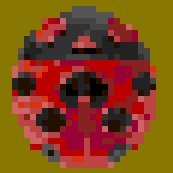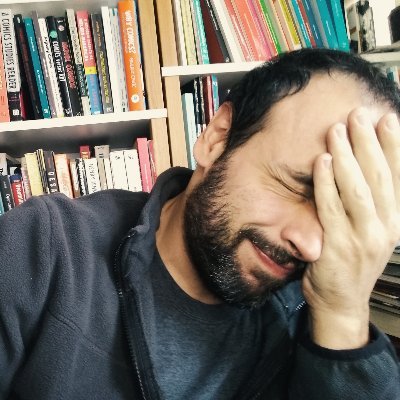
Shunichi Nakagawa
@snakagawa_md
Followers
28,197
Following
524
Media
244
Statuses
4,244
Director, Inpatient Palliative Care Services at Columbia University Irving Medical Center. Associate Professor @ColumbiaMed . Clinician-Educator.
New York, NY
Joined May 2012
Don't wanna be here?
Send us removal request.
Explore trending content on Musk Viewer
Adrián Marcelo
• 156320 Tweets
Alvarez
• 123625 Tweets
Ricardo
• 123337 Tweets
#FileninSultanları
• 108018 Tweets
Vargas
• 70903 Tweets
Sian
• 64243 Tweets
#TEAMWANGSPARKLES
• 56650 Tweets
ファミチキ
• 55250 Tweets
TEAMWANG DESIGN X GULF
• 34848 Tweets
Vinesh Phogat
• 28495 Tweets
#NeerajChopra
• 24919 Tweets
Hande
• 19205 Tweets
YARI FİNALDEYİZ
• 18924 Tweets
DOYOUNG ESSENTIAL PROJECT SONG
• 16265 Tweets
Elif
• 16181 Tweets
Türkiye - Çin
• 15073 Tweets
消しゴムマジック
• 13208 Tweets
アスクレピオス
• 10085 Tweets
Last Seen Profiles
A very bright med student, Wendy Tong, who rotated with me several months ago just published a beautiful poem in
@JAMAOnc
She held an iPad for a family whose loved one was dying. Family couldn't visit because they were far away.
7
73
360
@drkathrynmannix
@kipsDS2010
@white_generic
Communication is the most challenging procedure. It requires continuous, deliberate practice, like all the other surgical skills.
Check out my piece in
@JAMAInternalMed
8
98
349
Elated to receive the letter that I was promoted to Associate Professor of Medicine!!
So grateful for my mentors, colleagues, trainees, patients and my family.
Obviously, this is not the goal.
Will continue to work on elevating the level of
#palliativecare
in this hospital.
14
4
272
What I wrote here are skills.
You just cannot get better. You need to practice.
How?
Let me share my piece.
@drkathrynmannix
@kipsDS2010
@white_generic
Communication is the most challenging procedure. It requires continuous, deliberate practice, like all the other surgical skills.
Check out my piece in
@JAMAInternalMed
8
98
349
6
29
245
@AChronicPane
Yes.
Sometimes that happens.
Patients express they are tired and enough is enough.
12
3
212
First of all, we need to decide whether or not to do surgery.
The best tool for this is BC/WC model by
@GretchenSchwa10
The beauty in this model is, by giving the WC of surgery and the BC of no surgery, you can create the story for both options.
2/
3
40
202
"Am I dying?"
How should we answer this very toughest question?
My first-ever Op-ed came out in
@medpagetoday
.
Discussed how we should deliver prognosis.
@genevievefri
Opinion | How to Tell Patients They're Dying
12
62
199
A medical student who rotated with me 5 years ago went to a different institution for residency and came back here for a fellowship.
She told me today that the
#palliativecare
skills she learned here were EXTREMELY helpful.
It made my day.
3
3
191
Thrilled to announce that our paper is just out in
@BMJ_SPCare
!!
Common pitfalls in exploring values.
"What would he say?" --> "I don't know" --> freeze
"What is important?" --> "Getting better" --> freeze
What should you do?
1/
6
57
183
“Because he is so sick, his heart could stop. If that happened, would you want us to do CPR to revive him?”
This is how med students are taught how to discuss CPR in med schools.
We need to do a better job.
@SunitaPuriMD
7
42
145
Palliative care is NOT only for end of life.
When consulted before surgery,
- we explore the goals/values
- we sometimes encourage the high-risk procedure if that matches the goal
This process will help pt/family regardless of the outcome.
@Surgpallcare
@ColumbiaSurgery
1
28
140
Thanks to
@Dr_Oubre
, my followers almost doubled.
For new followers, I would like to retweet this tip for a family meeting.
2
4
137
1/ Proud to announce that our “3-stage protocol” for GOC is out in
@MayoProceedings
!!
I came up with this by synthesizing lessons/pedagogy I learned.
Former fellow, Dr. Emily Lu
@MSHSGeriPalCare
, worked with me to write it up.
4
54
128








































